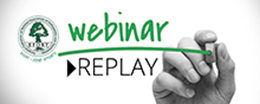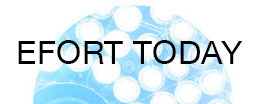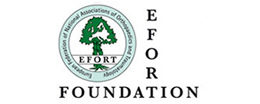Ami Hommel explains why nurses from all over Europe should come to the 11th EFORT Congress in Madrid and attend the nurse session and EWMA session on Thursday 3 June.
In 2010 nurses once more get a special invitation to take part in the 11th EFORT Congress. What will be the most important topics of the nurse session on Thursday 3 June?
Ami Hommel: Our major goal is to promote science in nursing by presenting projects and developments, so we have invited nurses to send in abstracts on different topics. Julie Santy, a PhD student from the University of Hull in the UK, will start the session by presenting her research into identifying infections in pin site wounds, which will be a good transition from the morning with EWMA. Elaine Collins from the Society of Orthopaedic and Trauma Nursing in the UK will be discussing the important topic of leadership. Another of our aims is to promote the Journal of Orthopaedic Nursing. We invite nurses all over Europe to send in the results of their research and reports on their efforts to improve the quality of their work for inclusion in the journal. At the end of the day we will have a discussion involving all the attendees. Hopefully we will be able to take steps towards founding a European Association of Orthopaedic Nurses.
Will local specialists be contributing to the programme of the nurse session?
Ami Hommel: We would very much like to have some lectures from local specialists. At the moment we are in the process of contacting the local organizations.
Besides the nurse session on 3 June there will also be the session of the European Wound Management Association (EWMA) focusing on problems with wounds and on pressure ulcers. What was the main reason for inviting the EWMA to the EFORT Congress?
Ami Hommel: Wounds and wound healing both play a big role in orthopaedic nursing. This topic is very important for our daily work. The EWMA has many well-known and highly qualified lecturers who can give us an insight into state-of-the-art treatment of problem wounds and pressure ulcers. We invited them because their contributions are of great interest to orthopaedic nurses and, I believe, even orthopaedic surgeons. So the EWMA session as part of our “nurses’ day” has the potential to attract a big audience.
Will the lectures in these sessions be translated into other languages?
Ami Hommel: A translation into Spanish could be of great benefit for the Spanish nurses. We will find out if this is possible, but it is too early to promise that there will be a translation.
What experience did you gain during the last EFORT Congress? Was the nurse session in Vienna a success?
Ami Hommel: For those who attended, the nurse session in Vienna definitely was a success. Unfortunately we did not promote the session enough, so many nurses arrived in Vienna without being aware that a programme had been arranged especially for them.
What potential do you see for changes and improvements?
Ami Hommel: I think we have already improved a lot this time. This year it will be easier to find information about the nurse session on the Congress web page www.efort.org/madrid2010. I have promoted EFORT at several orthopaedic nurse conferences. Our flyer will be presented on several websites, such as the Journal of Orthopaedic Nursing and the International Collaboration of Orthopaedic Nursing (ICON): www.orthopaedicnursing.org.
Looking to the future, what part will the nurse sessions play in EFORT Congresses over the coming years?
Ami Hommel: My vision of the future is that the nurse session will be an integral and natural part of the EFORT Congress. The Congress should become a place where orthopaedic nurses share their research findings and their experiences.


